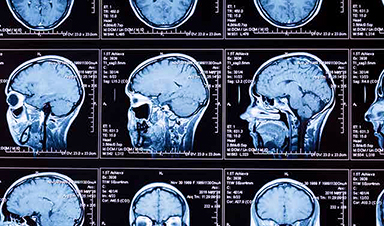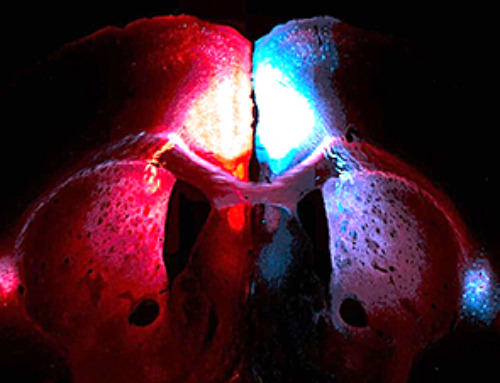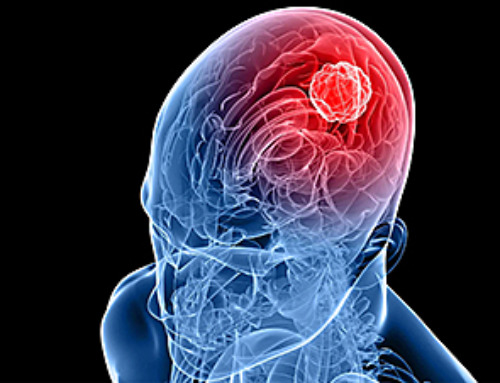Most of what we know about how COVID can affect the brain has come from studies of severe infection. In people with severe COVID, inflammatory cells from outside the brain can enter brain tissue and spread inflammation. There may be changes to blood vessels. Brain cells can even have changes similar to those seen in people with Alzheimer’s disease.
For the first time, a new study has investigated the effects of mild COVID (that is, infection that doesn’t lead to a hospital admission) on the brain. The findings may further explain some of the brain changes contributing to long COVID.
Brain scans and tests show changes
Many people who have had COVID report feelings of “brain fog”, fatigue and problems with concentration and memory long after their initial symptoms resolve. These problems, collectively referred to as “long COVID”, may last for months even after mild infection.
Long COVID is very common, and may affect more than half of the people who catch COVID, even if they have a mild case.
Scientists collected data as part of the massive UK Biobank database. They looked at brain magnetic resonance imaging (MRI) scans and tests of brain function in 785 volunteers who were assessed before the pandemic. They then compared this to the same data collected three years later, when about half of those participants had mild COVID infection, and the other half had not caught COVID. This allowed the scientists to determine the specific effects of mild COVID infection on brain structure and function.
The group who had mild COVID an average of five months beforehand had thinning of brain tissue in several brain regions, ranging from 0.2% to around 2% compared to their pre-COVID scan. This is equivalent to between one and six years of normal brain ageing. Affected brain regions included the parahippocampal gyrus (an area related to memory) and the orbitofrontal cortex, which is located at the front of the brain and is important for smell and taste.
The post-COVID group also showed a reduction in overall brain size between their MRI scans that wasn’t seen in the non-COVID group, and had altered connections between different brain regions in the olfactory cortex, an area related to smell.
They performed worse in a test for attention and mental flexibility, a finding that was associated with volume reductions within a part of the cerebellum related to smell and social relationships.
Comparing to other illnesses
To show these changes were specific to COVID and not just related to having a respiratory illness, the scientists also looked at a group of people who had pneumonia. They did not see the same changes, confirming they are related to COVID.
Decreases in brain volume are common to many brain diseases and disorders associated with degeneration, and have been found in people with mild cognitive impairment, Alzheimer’s disease, depression and traumatic brain injury, among others.
Problems with memory and attention are also frequent for people with these diseases and disorders, indicating mild COVID infection may accelerate brain degeneration. These changes could explain the reported symptoms of long COVID, such as brain fog.
The study did not look at the mechanisms of mild COVID in the brain. However, the authors suggest this could be due to inflammation, degeneration which spreads through the brain pathways associated with smell, or sensory deprivation due to loss of smell.
Read more from the source:
News
This Is Why the Same Virus Hits People So Differently
Scientists have mapped how genetics and life experiences leave lasting epigenetic marks on immune cells. The discovery helps explain why people respond so differently to the same infections and could lead to more personalized [...]
Rejuvenating neurons restores learning and memory in mice
EPFL scientists report that briefly switching on three “reprogramming” genes in a small set of memory-trace neurons restored memory in aged mice and in mouse models of Alzheimer’s disease to level of healthy young [...]
New book from Nanoappsmedical Inc. – Global Health Care Equivalency
A new book by Frank Boehm, NanoappsMedical Inc. Founder. This groundbreaking volume explores the vision of a Global Health Care Equivalency (GHCE) system powered by artificial intelligence and quantum computing technologies, operating on secure [...]
New Molecule Blocks Deadliest Brain Cancer at Its Genetic Root
Researchers have identified a molecule that disrupts a critical gene in glioblastoma. Scientists at the UVA Comprehensive Cancer Center say they have found a small molecule that can shut down a gene tied to glioblastoma, a [...]
Scientists Finally Solve a 30-Year-Old Cancer Mystery Hidden in Rye Pollen
Nearly 30 years after rye pollen molecules were shown to slow tumor growth in animals, scientists have finally determined their exact three-dimensional structures. Nearly 30 years ago, researchers noticed something surprising in rye pollen: [...]
NanoMedical Brain/Cloud Interface – Explorations and Implications. A new book from Frank Boehm
New book from Frank Boehm, NanoappsMedical Inc Founder: This book explores the future hypothetical possibility that the cerebral cortex of the human brain might be seamlessly, safely, and securely connected with the Cloud via [...]
How lipid nanoparticles carrying vaccines release their cargo
A study from FAU has shown that lipid nanoparticles restructure their membrane significantly after being absorbed into a cell and ending up in an acidic environment. Vaccines and other medicines are often packed in [...]
New book from NanoappsMedical Inc – Molecular Manufacturing: The Future of Nanomedicine
This book explores the revolutionary potential of atomically precise manufacturing technologies to transform global healthcare, as well as practically every other sector across society. This forward-thinking volume examines how envisaged Factory@Home systems might enable the cost-effective [...]
A Virus Designed in the Lab Could Help Defeat Antibiotic Resistance
Scientists can now design bacteria-killing viruses from DNA, opening a faster path to fighting superbugs. Bacteriophages have been used as treatments for bacterial infections for more than a century. Interest in these viruses is rising [...]
Sleep Deprivation Triggers a Strange Brain Cleanup
When you don’t sleep enough, your brain may clean itself at the exact moment you need it to think. Most people recognize the sensation. After a night of inadequate sleep, staying focused becomes harder [...]
Lab-grown corticospinal neurons offer new models for ALS and spinal injuries
Researchers have developed a way to grow a highly specialized subset of brain nerve cells that are involved in motor neuron disease and damaged in spinal injuries. Their study, published today in eLife as the final [...]
Urgent warning over deadly ‘brain swelling’ virus amid fears it could spread globally
Airports across Asia have been put on high alert after India confirmed two cases of the deadly Nipah virus in the state of West Bengal over the past month. Thailand, Nepal and Vietnam are among the [...]
This Vaccine Stops Bird Flu Before It Reaches the Lungs
A new nasal spray vaccine could stop bird flu at the door — blocking infection, reducing spread, and helping head off the next pandemic. Since first appearing in the United States in 2014, H5N1 [...]
These two viruses may become the next public health threats, scientists say
Two emerging pathogens with animal origins—influenza D virus and canine coronavirus—have so far been quietly flying under the radar, but researchers warn conditions are ripe for the viruses to spread more widely among humans. [...]
COVID-19 viral fragments shown to target and kill specific immune cells
COVID-19 viral fragments shown to target and kill specific immune cells in UCLA-led study Clues about extreme cases and omicron’s effects come from a cross-disciplinary international research team New research shows that after the [...]
Smaller Than a Grain of Salt: Engineers Create the World’s Tiniest Wireless Brain Implant
A salt-grain-sized neural implant can record and transmit brain activity wirelessly for extended periods. Researchers at Cornell University, working with collaborators, have created an extremely small neural implant that can sit on a grain of [...]





















